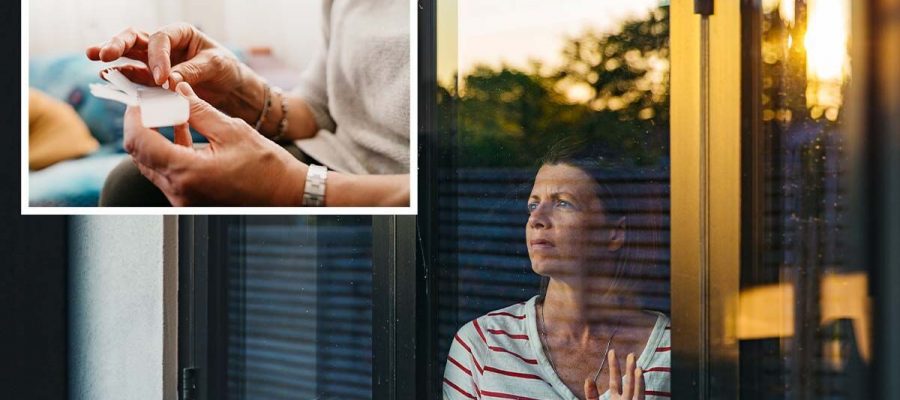John Lewis boss demands Covid-style intervention over energy crisis
We use your sign-up to provide content in ways you’ve consented to and to improve our understanding of you. This may include adverts from us and 3rd parties based on our understanding. You can unsubscribe at any time. More info
Miranda Scanlon is a kidney transplant patient and Kidney Research UK’s Lay Advisory Group Lead.
Scanlon recently spoke to Express.co.uk about her experiences of the pandemic and how her life “changed” when the virus struck and the sensation of not being able to leave her home for three months due to shielding rules.
Post-lockdown Miranda says her life remains restricted: “I haven’t been to a face-to-face work meeting for two years. I never eat in a restaurant or a café or been inside a gym or a pub. I’ve been to a hairdresser once in two years. I rarely have people round to my place.”
Such is the contrast between her life and those who aren’t immunosuppressed, some individuals believe the immunosuppressed have been forgotten by the government.
On life post-lockdown Scanlon added: “It’s difficult because we’re often very productive members of society. People have a sort of idea that immunosuppressed people all just be very ill and be at home, but I was out and about before Covid, lead a reasonably normal life.”

Scanlon says: “I think we do need a clear pathway out of the pandemic [but] bringing back mandatory masks and social distancing is not going to be acceptable to the general public.”
So, what can a government do to help half a million people return to the new normal?
The answer, it seems, was approved just under two months ago with approval of a new monoclonal antibody treatment by AstraZeneca known as Evushield.
Scanlon explains: “For people who are immunosuppressed when they have their vaccine they don’t produce antibodies because of the immunosuppressant medicines we take, our bodies find it difficult to produce the appropriate response to a vaccine and that leaves us unprotected from Covid en though we’ve had the vaccination.
“Evidence shows that if Evushield is given to people without antibodies before they get Covid they get at least 80 percent protection from Covid for six months.”
Evushield has been approved by the Medicines and Healthcare products Regulatory Agency (MHRA), the UK’s approval body for new medication, and by the NHS.
There’s just one small problem.
The government hasn’t purchased any.
This decision has left the immunosuppressed in limbo; Scanlon says it is as if the government has dangled it in front of them but won’t let them have it.

Scanlon adds: “To have this light at the end of the tunnel and yet deny it, it’s just soul destroying.”
As a result, 500,000 people have been left on the edge of freedom from Covid but remain trapped by a viral door they cannot walk through, even though they can see it dangling from the pocket of the people who have it.
In the meantime, the charity Scanlon works for, Kidney Research UK, has launched an investigation into the protection
COVID-19 vaccines confer on young, immunosuppressed people.
The study will examine individuals between the ages of 12 and 17.

Study lead at Imperial College London Dr Michelle Willicombe said in a statement: “Information on how young, immunosuppressed people have responded to vaccination and the protection it affords them is currently lacking, so we are delighted for the additional support.
“If we can understand more about how this group of people respond to vaccines, then this will inform future vaccination strategies and also identify those young people who are most at risk of catching COVID-19.”
Dr Aisling McMahon added: “We are starting to build a clearer picture on how vaccination has provided varying levels of protection…but we still have very little data on how well vaccines protect the younger members of this group.”
Going forward the aim is to have a greater understanding of how effective vaccines are for those with weaker or non-existent immune systems.
Source: Read Full Article
